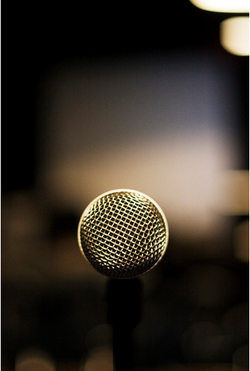
The Laughing at the… series document trends and developments in comedy during the 80s, 90s and 00s. Comedians Ben Elton, Jennifer Saunders and Catherine Tate present the shows respectively, discussing the decade in which they kick started their comedy careers. I don’t know why, but the documentaries have been released in the order of 90s, 00s and 80s.
Saunders discussed Ab Fab and the rise of laddism and how comedy became “the new rock and roll”, with comedians headlining arenas and Frank Skinner somehow becoming a sex symbol. Or that’s how Skinner implies it.
Tate addressed on the 00s as the decade that began on a high note before taking a disastrous downturn. How did we deal with this? “To help us escape the doom and gloom, we turned to celebrity culture”. The art of sending people up was made personal. Comedians are exempt from political correctness; our lack of humour is not their problem.
The 00s documentary brings us to Elton’s take on the 80s, where young comedians took on the old school Mother in Law/racist jokes and invented ‘alternative comedy’.
Perhaps there is a logic as to why (WHY?) these documentaries have been sequenced as 90s, 00s, 80s. The stark contrast between what was edgy in the 80s and what is considered edgy now.
The 80s was the decade that truly bore Political Correctness. To be young in comedy was to be left-wing and right-on.
What’s interesting about the 3 documentaries is the presence of female comics and when their careers started. The 80s boasts the launch of French & Saunders, Victoria Wood, Julia Walters and Jo Brand’s careers. In the 90s Caroline Ahern, Arabella Weir and Rebecca rose to more mainstream fame and the 00s has… Catherine Tate.
Not to take away from Catherine Tate’s talent. It was noticeable how every decade documented was able to show a mass of new male comedians who made it in the specified decade but few new women. You don’t have to go through this Wikipedia page of UK comedians to see women are either A) not rushing to take back the open mic night or B) not well received.
The women to men ratio is glossed over by both Tate and Saunders. Elton, in an interview with Victoria Wood addresses this issue head on.
The only other job I can think of that requires the ability to control a group of people is teaching. Women are in the majority when it comes to the teaching profession and many recoil at the thought of addressing a classroom. So why isn’t that link made between addressing a room full of teens and a room full of (probably pissed) adults?
Ben Elton countered Wood’s reasoning, “but I think the reason they’re not drawn to it is because of the environment that exists when you go on stage, which is reflective of the social environment… without a doubt, there was a conscious effort in the ‘80s to move towards, frankly, a more civilised society, a more polite society where we didn’t tolerate…racism, and sexism and people looked stupid if they just sounded like a drunk yobbo. Now sounding like a drunk yobbo is some sort of post-modern, ironic sort of pose.
I think it’s really down to the fact that the efforts that were made to create, I guess, a more interesting comedy, a comedy where subject matter wasn’t always abusive, I think a lot of that has been sort of sacrificed for easy laughs again, and I think that puts women in a very difficult position.”
This is where I would like to high five Ben Elton. I adore attending live stand-up nights, but when the compere just spent 5 minutes getting laughs for perving over a women in the front row, where can you go from there?
Call the compere on it and you are a humourless feminist, carry on the joke and, well, you’re on the team but at what price?
There is an Oxbridge comedian (let’s call him James Van) who rose to fame in the 00s with jibes that are constantly being defended. Despite them sounding suspiciously homophobic or fattist to my ears, he’s not being offensive, he’s being edgy. I don’t know what’s edgy about his shtick. I suppose it is quite a feat to manage to be both offensive and boring.
If that is the future of comedy I’m not sure I want to be a part of it. I will leave you with another remark from Ben Elton:
“For a brief period, comedians made a conscious effort to avoid getting laughs by massaging popular prejudice – against women for instance, or gays, ethnic minorities, the poor, the disabled. I think perhaps that self-censorship has largely disappeared again. Easy options are sometimes being taken, often in the name of being bravely and boldly and shockingly post-modern and ironic. Bashing down the barriers of political correctness…barriers which, to my mind, were only ever there for 5 minutes in the first place anyway and which I never really saw as barriers, more as gateways…”
Squeamish Kate
 RSS Feed
RSS Feed
